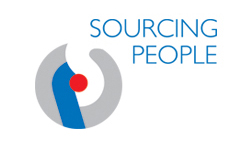Scandinavian Purchasing Group has a large number of consultants, each with their own unique expertise and extensive experience from many years in the business world. This means that we will find the right consultant or team of consultants with suitable skills and experience for your needs, at short notice.
We’re good at what we do and we do what we are good at. Our expertise is constantly developing.
Below you will find a brief listing of our main areas of expertise.
Strategy and Policy Development
How should we go about maximizing value for money in purchasing? How many suppliers should we have? What are the supplier selection criteria? How do we ensure delivery AND leverage price? What risks do we accept when buying from foreign countries? The questions are as numerous as they are interesting. These discussions bring us to the company’s procurement strategy, which will be subtly different for different categories of spend. In cooperation with the customer, we will develop a sustainable strategy which outlines customized and optimized working procedures.
All companies need guidelines for how business should be conducted. It creates order. In the context of purchasing, guidelines form a purchasing policy which describes the responsibilities, authorities and roles regarding purchasing activity. It may also include spend limits, codes of conduct and the company’s rules on corporate gifts, etc.
Organisational Development
What do internal customers think of the purchasing department? A significant issue is that the answer is often ”an obstacle, a hindrance or level of bureaucracy”. When this is the case, it is often the wrong Organization for serving its stakeholders or customers effectively. The right resource in the right place is a good start once the chart is redrawn to meet the customers’ needs and at the same time be effective with the supply base. This is particularly critical in matrix companies with multiple divisions in multiple markets. How do you create an efficient procurement process in such a complex environment?
KPI Models
”You can’t measure it if doesn’t exist” is perhaps an exaggeration, but the fact is that without relevant and intelligible key performance indicators (‘KPIs’) for reporting and business control, we are working in the dark. Developing the right measurements for efficient and easy control requires a lot of thought. Carefully selected KPIs give activities objectives and engage employees’ interest.
e-Sourcing
eSourcing allows you to comfortably reach a large number of suppliers, effectively manage several similar bids, minimize evaluation time and sign contracts quickly. Obviously this requires preparation, but when the material is re-used in several events, it becomes more and more efficient. Complex procurement of both goods and services can be incredibly effective, and with astonishing results.
Some commodity groups are also suitable for auctions – ‘e-Auctions’ – replacing traditional evaluation procedures. There are already low prices even lower. In addition, e-Auctions can be a source of entertainment.
Benchmarking
Sometimes you just need to know what the ’going rate’ is among suppliers and their competitors. Some agreements refer to the ”market price”, but what does this mean? To make the right decisions regarding market trends or future contract renegotiation, competent and clearly presented benchmarking is invaluable.
Processes
Purchasing is often a question of structure. It is incredibly important to do the right things, do them correctly and (above all) in the right order. This is done by describing the processes to be used. A company-specific purchasing process is simply a description of the approach the company has chosen to adopt. Purchasing is now becoming more professional, more efficient and safer with better adapted processes. The Purchasing Process describes the different stages, not only from preliminary study to signing the agreement but also from order to payment; sometimes even all the way to invoice payment, allocating responsibilities along the way.
Tendering and Contracts
The biggest problem in purchasing is knowing what you want; developing accurate specifications can be a major task. The quality of what you ask the supplier is crucially important to the quality of the answers you get back; even worse you may get no response at all. The time consumed in evaluating tenders is reduced significantly and accuracy increases with well thought out specifications. Business risk is minimised too when many of the terms and conditions are already agreed and laid out in the tender documents.
”There is no need to use a good contract – it covers everything but never leaves the desk drawer.” But sometimes this isn’t the case. You may need to review the commercial and legal wording to understand how things work. Writing purchasing agreements that guarantee delivery in all eventualities is an art which requires long experience.
CSR and the Environment
Corporate Social Responsibility (CSR) and environmental questions go hand in hand. Behaving morally and ethically correct is a matter of course for most companies, but do all have an eye on their subcontractors and suppliers? How far does or should your responsibility extend? Familiarizing yourself with these matters contributes foremost to a better world, but it could also be essential to the survival of your brand.

